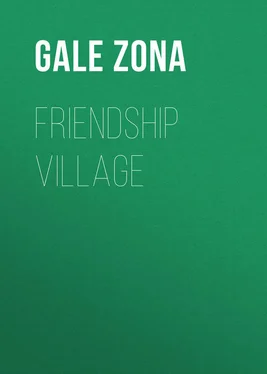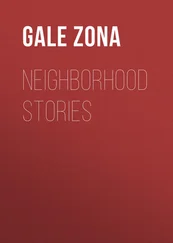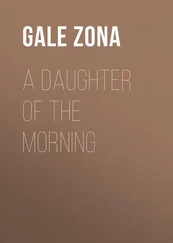Zona Gale - Friendship Village
Здесь есть возможность читать онлайн «Zona Gale - Friendship Village» — ознакомительный отрывок электронной книги совершенно бесплатно, а после прочтения отрывка купить полную версию. В некоторых случаях можно слушать аудио, скачать через торрент в формате fb2 и присутствует краткое содержание. Жанр: foreign_antique, foreign_prose, на английском языке. Описание произведения, (предисловие) а так же отзывы посетителей доступны на портале библиотеки ЛибКат.
- Название:Friendship Village
- Автор:
- Жанр:
- Год:неизвестен
- ISBN:нет данных
- Рейтинг книги:3 / 5. Голосов: 1
-
Избранное:Добавить в избранное
- Отзывы:
-
Ваша оценка:
- 60
- 1
- 2
- 3
- 4
- 5
Friendship Village: краткое содержание, описание и аннотация
Предлагаем к чтению аннотацию, описание, краткое содержание или предисловие (зависит от того, что написал сам автор книги «Friendship Village»). Если вы не нашли необходимую информацию о книге — напишите в комментариях, мы постараемся отыскать её.
Friendship Village — читать онлайн ознакомительный отрывок
Ниже представлен текст книги, разбитый по страницам. Система сохранения места последней прочитанной страницы, позволяет с удобством читать онлайн бесплатно книгу «Friendship Village», без необходимости каждый раз заново искать на чём Вы остановились. Поставьте закладку, и сможете в любой момент перейти на страницу, на которой закончили чтение.
Интервал:
Закладка:
Thus the New shoulders the Old, and our transition is still swift enough to be a spectacle, as was its earlier phase which gave over our Middle West to cabins and plough horses, with a tendency away from wigwams and bob-whites. And in this local warfare between Old and New a chief figure is Calliope Marsh – who just said that about the new doctor. She is a little rosy wrinkled creature officially – though no other than officially – pertaining to sixty years; mender of lace, seller of extracts, and music teacher, but of the three she thinks of the last as her true vocation. ("I come honestly by that," she says. "You know my father before me was rill musical. I was babtized Calliope because a circus with one come through the town the day't I was born.") And with her, too, the grafting of to-morrow upon yesterday is unconscious; or only momentarily conscious, as when she phrased it: —
"Land, land, I like New as well as anybody. But I want it should be put in the Old kind o' gentle, like an i -dee in your mind, an' not sudden, like a bullet in your brain."
In her acceptance of innovations Calliope symbolizes the fine Friendship tendency to scientific procedure, to the penetration of the unknown through the known, the explication of mystery by natural law. And when to the bright-figured paper and pictures of her little sitting room she had added a print of the Mona Lisa, she observed: —
"She sort o' lifts me up, like somethin' I've thought of, myself. But I don't see any sense in raisin' a question about what her smile means. I told the agent so. 'Whenever I set for my photograph,' I says to him, 'I always have that same silly smile on my face.'"
With us all the Friendship idea prevails: we accept what Progress sends, but we regard it in our own fashion. Our improvements, like our entertainments, our funerals, our holidays, and our very loves, are but Friendship Village exponents of the modern spirit. Perhaps, in a tenderer significance than she meant, Calliope characterized us when she said: —
"This town is more like a back door than a front – or, givin' it full credit, anyhow , it's no more'n a side door, with no vines."
For indeed, we are a kind of middle door to experience, minus the fuss of official arriving and, too, without the old odours of the kitchen savoury beds; but having, instead, a serene side-door existence, partaking of both electric bells and of neighbours with shawls pinned over their heads.
Only at one point Calliope was wrong. There are vines, with tendrils and flowers and many birds.
II
THE DÉBUT
Mrs. Ricker, "washens, scrubben, work by the day or Our," as the sign of her own lettering announced, had come into a little fortune by the death of her first husband, Al Kitton, early divorced and late repentant. Just before my arrival in Friendship she had bought a respectable frame house in the heart of the village, – for a village will have a heart instead of having a boulevard, – and with her daughter Emerel she had set up a modest establishment with Ingrain carpets and parlour pieces, and a bit of grass in front. Thus Emerel Kitton – we, in our simple, penultimate way, called it Kitten – became a kind of heiress. She had been christened Emma Ella, but her mother, of her love of order, had tidied the name to Emerel, and Friendship had adopted the form, perhaps as having about it something pleasing and jewel-like. Though Emerel was in the thirties at the time of her inheritance, she was still pretty, shy, conformable; and yet there was no disguising that she was nearly a spinster when, as soon as the white house was settled, Mrs. Ricker issued invitations to her daughter's coming-out party.
You aRe Invite to A
Comen Out Recep
Next wenesday Night at eigt
At Her Home
Emma Ella Kitton
Mrs. Ricker and Kitton
Pa
the invitations said, and the "Pa" was divined to imply "Please answer."
"It's Kitton's money an' it's his daughter. I hed to hev him in it somehow," Mrs. Ricker explained her double signature. "You see," she added, "up till now I ain't never been situate' so's Emerel could come out. I've always wanted to give her things, too, but 't seems like when I've tried, everything's shook its fist at me. It ain't too late. Emerel looks just like she did fifteen years ago, don't she?"
It was at once observed that if Emerel shared her mother's enthusiasm for the project, she did not betray it. But then no one knew much about Emerel save that she was engaged, and had been so for some years, to big Abe Daniel, the Methodist tenor, a circumstance wholly unconsidered in the scheme of her début.
Quite simply and with happy pride, Mrs. Ricker and Kitton issued her invitations to every one in the village who had ever employed her. And the village was divided against itself.
"How can we?" Mis' Postmaster Sykes demanded, "I ask you. There's things to omit an' there's things to observe. We should be The Laughing Stock."
"The Laughing Stock," variously echoed her followers.
On the other hand: —
"Land, o' course we'll all go," Mis' Amanda Toplady comfortably settled it, "an' take Emerel a deboo present, civilized. The dear child."
And to that many of us gladly assented, Timothy, big Amanda's little husband, going so far as to add:
"I do vum, the Sykeses feels the post-office like it was that much oats."
A day later Timothy's opinion seemed, he thought, to be verified. Mis' Postmaster Sykes issued "written invites to an evening party, hot supper and like that," as Friendship communicated it, to be given on the very night of Emerel's début.
Friendship was shaken. Never in the history of the village had two social affairs been set for the same hour. Indeed, more than one hostess had postponed an impending tea-party or thimble party or "afternoon coffee" or "five o'clock supper" on hearing that another was planned for the same day. And now, when there were those of us anxious to "do something nice" for hard-working little Mrs. Ricker, the Sykeses had deliberately sought the forbidden ground. And Society dare not deny Mis' Sykes, for besides "being who she was" ("She's the leader in Friendship if they is a leader," we said, emphatically implying that there was none), she kept two maids, – little young thing and a rill hired girl, – entertained "above the most," put out her sewing and wore, we kept in the back of our minds, a bar pin, solid, with "four solitaires" in it. And, "Oh, you know," Calliope Marsh admitted to me later, "Mis' Sykes is rilly a great society woman. They isn't anybody's funeral that she don't get to ride to the cemet'ry."
Mrs. Ricker and Kitton accepted the situation with fine philosophy.
"Of course," she said, "the whole town can dance to the Sykeses' fiddlin' if they want. But it's a pretty pass if they do let anybody step in before me that's washed for 'em an' cleaned their houses years on end."
My own course was pleasantly simple. Mrs. Ricker and Kitton had included me on her list, accredited, no doubt, because a few weeks earlier she had helped me to settle my belongings in Oldmoxon house, and since then had twice swept for me, and was to come in a day or two to do so again. As I had instantly accepted her invitation, I had no choice when Mis' Sykes's "written invite" came, even though when it arrived Mis' Sykes herself was calling on me.
"Well said," she observed, when she saw a neighbour's little girl, her temporary servitor, coming up my walk with the invitations in a paper bag to be kept clean, "I meant to get my call made on you before your invite got here. I hope you'll overlook taking us both together. I've meant to call on you before, but I declare it looked like a mountain to me to get started out. Don't you find your calls a rill chore?"
Читать дальшеИнтервал:
Закладка:
Похожие книги на «Friendship Village»
Представляем Вашему вниманию похожие книги на «Friendship Village» списком для выбора. Мы отобрали схожую по названию и смыслу литературу в надежде предоставить читателям больше вариантов отыскать новые, интересные, ещё непрочитанные произведения.
Обсуждение, отзывы о книге «Friendship Village» и просто собственные мнения читателей. Оставьте ваши комментарии, напишите, что Вы думаете о произведении, его смысле или главных героях. Укажите что конкретно понравилось, а что нет, и почему Вы так считаете.












